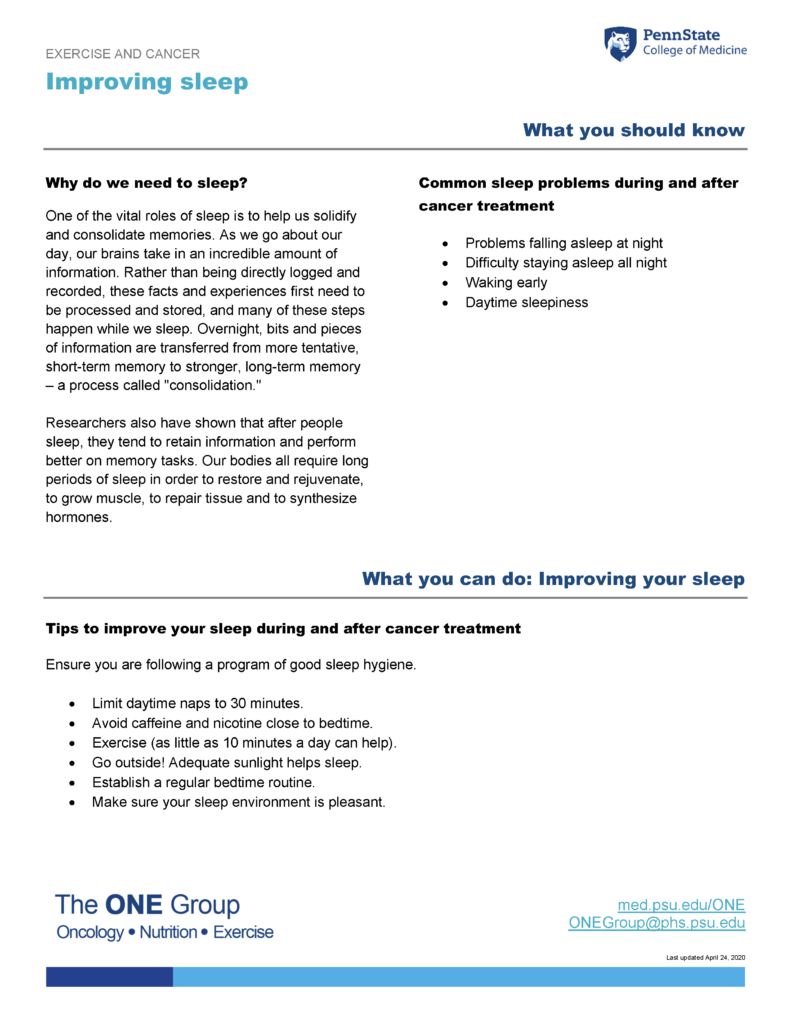Learn about improving sleep in people with cancer in this guide from The ONE Group (Oncology – Nutrition – Exercise) at Penn State College of Medicine.
Jump to topic
Search
What you should know
Why do we need to sleep?
One of the vital roles of sleep is to help us solidify and consolidate memories. As we go about our day, our brains take in an incredible amount of information. Rather than being directly logged and recorded, these facts and experiences first need to be processed and stored, and many of these steps happen while we sleep. Overnight, bits and pieces of information are transferred from more tentative, short-term memory to stronger, long-term memory – a process called “consolidation.”
Researchers also have shown that after people sleep, they tend to retain information and perform better on memory tasks. Our bodies all require long periods of sleep in order to restore and rejuvenate, to grow muscle, to repair tissue and to synthesize hormones.
Common sleep problems during and after cancer treatment
- Problems falling asleep at night
- Difficulty staying asleep all night
- Waking early
- Daytime sleepiness
What you can do: Improving your sleep
Tips to improve your sleep during and after cancer treatment
Ensure you are following a program of good sleep hygiene.
- Limit daytime naps to 30 minutes.
- Avoid caffeine and nicotine close to bedtime.
- Exercise (as little as 10 minutes a day can help).
- Go outside! Adequate sunlight helps sleep.
- Establish a regular bedtime routine.
- Make sure your sleep environment is pleasant.
Foods to avoid
- Spicy foods
- Heavy or rich foods
- Fatty or fried foods
- Citrus fruit and juices
- Caffeinated beverages
- Carbonated beverages
- Alcohol
Practical exercise tips
- If you don’t usually exercise, try taking a 10-minute walk every day and build up the amount of time until you are walking 30 minutes a day, three times a week.
- Resistance exercise twice weekly also can be useful for improving sleep in people living with and beyond cancer.
Where can I find more information about aerobic and strength-training exercises?
If you are interested in starting aerobic and/or strength-training exercises, The ONE Group (Oncology – Nutrition – Exercise) provides videos demonstrating proper form for more than 50 exercises.
Notes
Contact your physician if:
- You spend more than a week with poor sleep.
- You would like to consider using medications.
- Your sleep issues prevent you from staying awake during the day for more than a day.
References
- American Cancer Society
- American College of Sports Medicine Moving Through Cancer initiative
- American Sleep Foundation
- National Comprehensive Cancer Network

